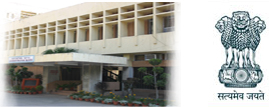 The National Institute of Health and Family Welfare (NIHFW)
The National Institute of Health and Family Welfare (NIHFW)

 The National Institute of Health and Family Welfare (NIHFW)
The National Institute of Health and Family Welfare (NIHFW)

The page you are attempting to access cannot be found. It may have been moved / renamed or may no longer exist. We have recently redesigned our website to make it easier and faster for you to find the information you need. This means the bookmarks and addresses you have used in the past may no longer work.
To find the information you are looking for please try one of the following.